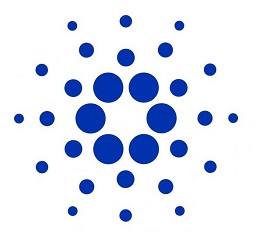Understanding the Differences Between Polkadot, Cardano, and Venom
Blockchain technology has come a long way since the creation of Bitcoin in 2009, with new platforms emerging to address the limitations of earlier systems. Polkadot, Cardano, and Venom are three such platforms that are gaining traction in the blockchain development community. While they all share the same goal of building a decentralized, secure, and scalable ecosystem, they differ in their approach and features. In this article, we will compare the features and benefits of Polkadot, Cardano, and Venom for blockchain developers.

Comparing the Features and Benefits of Polkadot, Cardano, and Venom for Blockchain Developers
Polkadot

Polkadot is a multi-chain platform that allows blockchain developers to build interoperable applications. It uses a sharded architecture that enables parallel processing of transactions, making it more efficient than traditional blockchains. Polkadot also has a governance system that allows token holders to vote on proposals, ensuring that the platform evolves according to the community’s needs.
One of the main advantages of Polkadot for developers is its ease of use. It provides a framework that enables developers to build their own blockchains and connect them to the Polkadot network. Moreover, Polkadot’s interoperability feature makes it a versatile platform for building decentralized applications that can communicate with other blockchains. This opens up new possibilities for developers who want to build complex applications that require integration with multiple systems.
Cardano
 Cardano is a third-generation blockchain platform that uses a proof-of-stake consensus mechanism to validate transactions. It is designed to be scalable, secure, and sustainable, with a focus on academic research and peer-reviewed development. Cardano also has a governance system that allows token holders to vote on proposals, giving them a say in the platform’s evolution.
Cardano is a third-generation blockchain platform that uses a proof-of-stake consensus mechanism to validate transactions. It is designed to be scalable, secure, and sustainable, with a focus on academic research and peer-reviewed development. Cardano also has a governance system that allows token holders to vote on proposals, giving them a say in the platform’s evolution.
One of the main benefits of Cardano for developers is its focus on formal verification. This means that the platform uses mathematical proofs to verify the correctness of code, ensuring that it is secure and bug-free. This makes Cardano a robust platform for building decentralized applications that require a high degree of security and reliability. Moreover, Cardano’s scalability features make it suitable for building applications that can handle a large number of transactions.
Venom

Venom is a blockchain platform that uses a hybrid consensus mechanism to validate transactions. It combines proof-of-work and proof-of-stake to achieve a high degree of security and scalability. Venom also has a governance system that allows token holders to vote on proposals, ensuring that the platform evolves according to the community’s needs.
One of the main benefits of Venom for developers is its flexibility. It supports multiple programming languages, making it easy for developers to build applications using their preferred language. Moreover, Venom’s hybrid consensus mechanism makes it suitable for building applications that require a high degree of security and scalability. The platform also offers a range of tools and services to support developers, including a smart contract editor and deployment platform.
In conclusion, Polkadot, Cardano, and Venom are three blockchain platforms that offer different features and benefits for developers. Polkadot is a multi-chain platform that enables interoperability, Cardano focuses on formal verification, and Venom offers flexibility and hybrid consensus. Each platform has its own strengths and weaknesses, and developers should choose the one that best fits their project’s requirements. Ultimately, the success of these platforms will depend on their ability to attract and support a vibrant developer community.
ChesWorkShop commits to presenting fair and reliable information on subjects including cryptocurrency, finance, trading, and stocks. However, we do not have the capacity to offer financial guidance, advocating instead for users to conduct their own diligent research.
